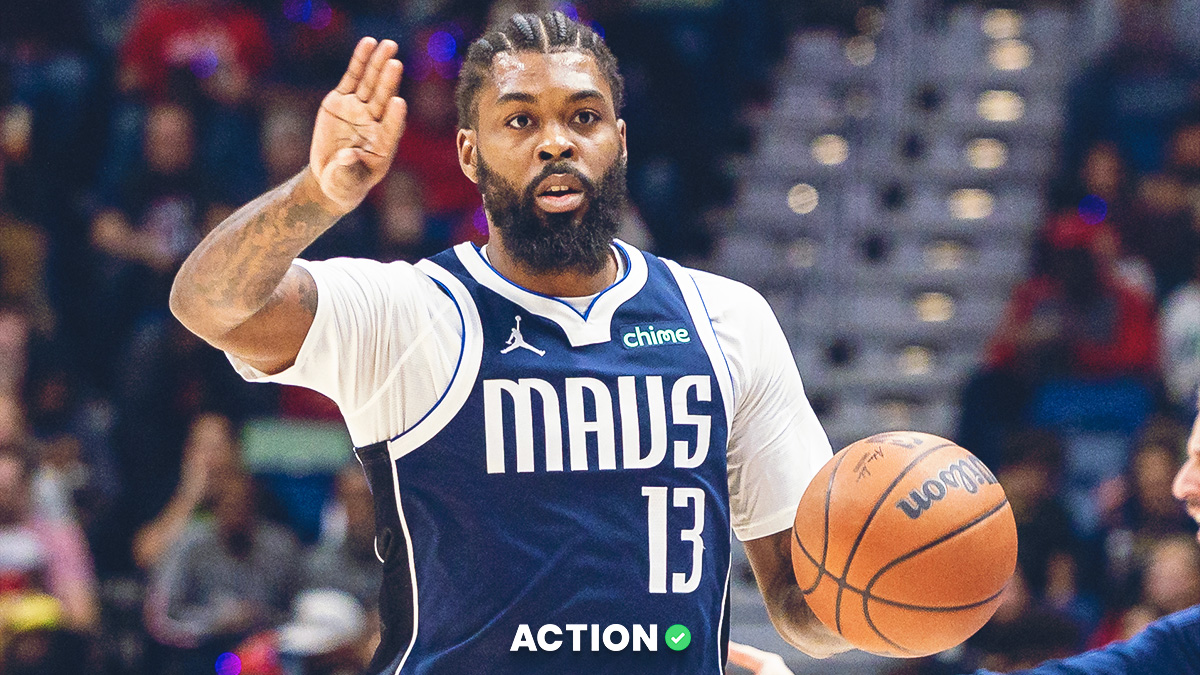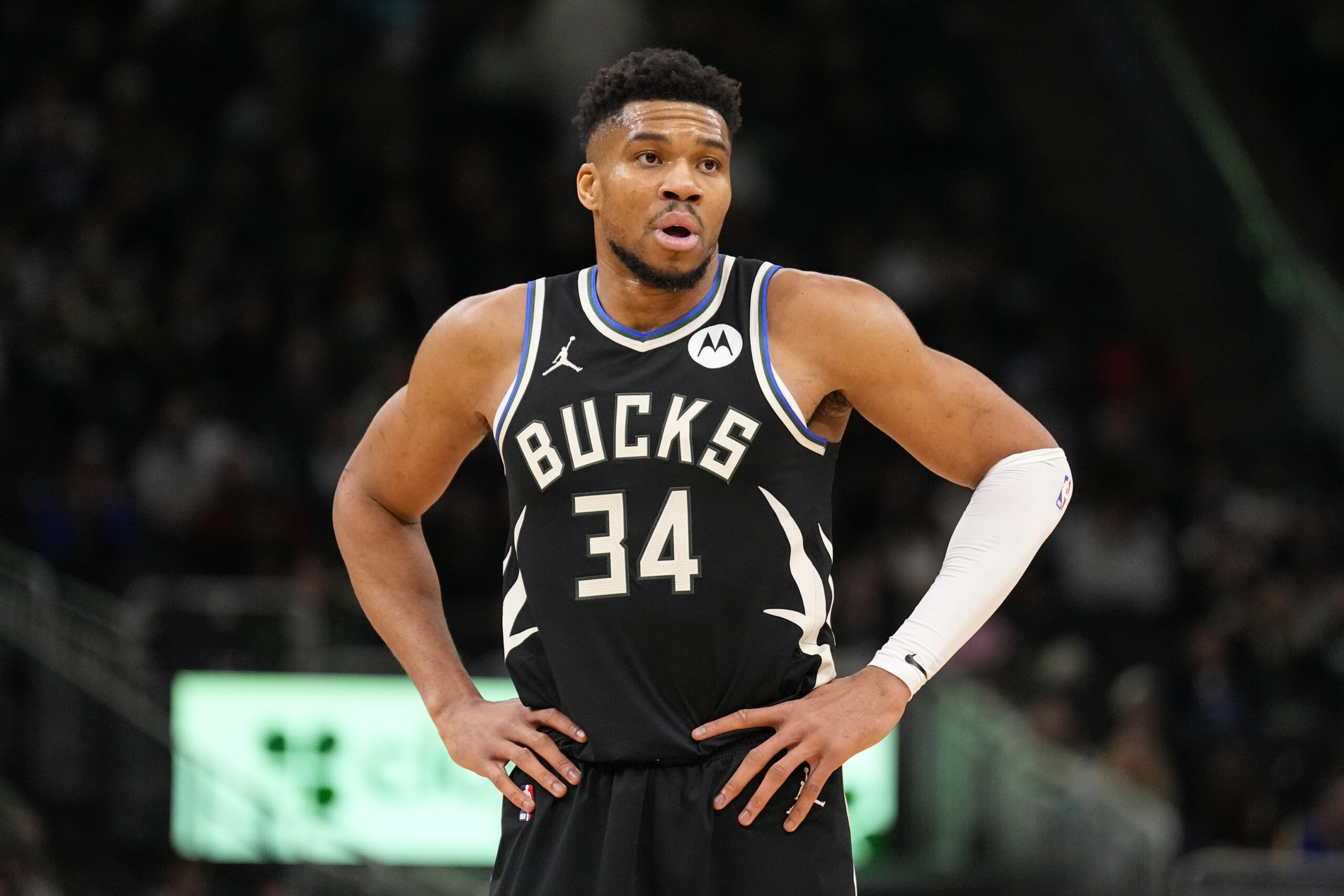NBA Betting Picks & Analysis
NBA Betting is Back in Action with the NBA 2025-26 Season
Professional basketball is a sport that is often seen through the lens of sports betting. The NBA is a league that has a good amount of regular season games, and there seems to be a lot of focus on player performance. This opens the door for player prop bets and player futures bets. Especially once you get into the meat of the NBA Playoffs, there are plenty of opportunities to wager on player success, team performance, and much more.
The Action Network is your source for everything NBA from team news and updates to sports betting details and sportsbook promo codes. Take a look at all that we have to offer:
NBA Betting Guides
- Our NBA best bets for today via the Buckets podcast
NBA Team News & Odds
Never miss an update about your favorite NBA team with the Action Network's detailed team pages. From breaking news, player stats, and injury reports to weekly odds breakdowns and the NBA Betting Promos, we have got you covered.
Daily NBA Game Odds
Whether you care about a specific team or you're just interested in the daily slate, our odds table will help you shop lines across the most popular sportsbooks to get the best edge possible. Easily filter between betting markets to get data for only what you care about.
NBA Futures Odds
Got a hunch on this year's NBA Finals winner? Feel like your team is a lock to win their conference? If so, you need to look into NBA futures. Futures bets are those whose result is not determined until much later in the season. They're notoriously hard to predict, but if you manage to win, you're likely to achieve great rewards. The Action Network has compiled future odds for just about everything related to the NBA season including team performance and individual awards.
NBA Futures Hub - Check here for future odds on every aspect of the 2025-2026 season
Expert NBA Picks
It can be nice to get an expert's take on a particularly challenging match up for new bettors and veterans alike. Our NBA betting experts are here to lend some advice. Analyzing a variety of factors that could impact the outcome of a game, they make their picks on a variety of markets such as the spread, moneylines, prop bets and more. This is the place to go for some picking inspiration.
NBA Public Betting and NBA Betting Tips
For those bettors who want to dive into data before placing a wager will benefit from our Public Betting page. On this page, we track not only the percentage of bets placed on a team in a match up, but also the percentage of money. Gleaming insights from this data can help users identify where the professional gamblers are placing their money, which can help boost win rates.
NBA Against the Spread (ATS) Records
Betting the spread is probably the most popular form of NBA betting. While this betting market tends to get significant action, it can also be one of the more difficult options. Because the spread makers are so good at what they do, their lines are usually pretty spot on, making it difficult as a bettor to pick correctly. Looking at team trends against the spread over the course of the season can help bettors make more informed decisions based on hard data for a particular team.
NBA Injury Report
Injuries always play a significant role in any NBA season. The loss of key players can dramatically alter a team's prospect for winning games. Not only that, but the absence of stars on the court will also impact a game's odds. Seasoned bettors know to scour the injury reports before making a wager to ensure that their selection is one that takes into account who might be missing from the field in a given contest.
PRO Analysis
In addition to all of the NBA information available to users on the Action Network for free, we have also created our PRO tools that take our betting analyses a step further. Our experts will track best odds across books, top trends for individual contests, as well as grading picks based on all available signals so that users can feel an extra level of confidence before placing a wager.
State Betting Guides
While legalized sports betting has been gaining momentum across the United States, it still has a long way to go before being permitted in most states. The Action Network is meticulously tracking all legislation efforts across each state in order to provide detailed updates to users. Be sure to check our pages regularly for updates in your area if you live in a location where online sports betting is not yet legal.
Best NBA Sportsbooks
Finding the right sportsbook can be challenging. Depending on what your primary interest is with NBA betting, there are a multitude of choices to fit your preferences. The Action Network has created detailed sportsbook reviews for a variety of the most popular books in the country to help you understand exactly what to expect before signing up. We've also partnered with many of these sportsbooks to provide new users with some of the best activation codes in the industry! Read our bet365 bonus code, BetMGM bonus code, BetRivers promo code, and theScore Bet promo code reviews to get started!
Of course, sportsbooks are great, but you can also check out something new with our Kalshi referral code and get started on a CFTC-regulated platform for prediction markets!
Betting Education
NBA betting is hard enough as it is. Don't do yourself a disservice by not having all the vital betting information necessary to make an informed decision. We have compiled a hub of educational resources to help get you up to speed on everything you need to know to improve your chances of making a smart NBA bet. From beginner information to more complex strategy options, we can guide you through your sports betting journey. The content on this site is for entertainment purposes only. Always respect your jurisdiction's sports betting laws.





















































